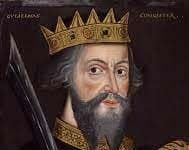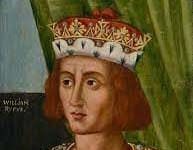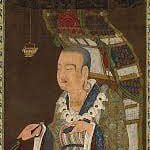“Al-Farabi Comprehensive Biography: Explore the life and contributions of Al-Farabi, the renowned Islamic philosopher, scientist, and polymath. Learn about his influential works in philosophy, political theory, and logic, and his impact on medieval thought.”
Al-Farabi: Introductory
Abu Nasr Muhammad al-Farabi, commonly known as al-Farabi, was a medieval philosopher and polymath of the Islamic Golden Age, born in the city of Farab in present-day Kazakhstan in 870 AD. He is considered one of the greatest Muslim philosophers and scholars of the Islamic world and is referred to as the “Second Master” after Aristotle.
Education and Early Career
Al-Farabi received a comprehensive education in Islamic law, grammar, logic, philosophy, mathematics, and music. He was well-versed in the Greek language and became proficient in the works of Aristotle, Plato, and the Hellenistic philosophers. He also learned about Indian and Persian philosophy and science.
Philosophical Contributions
Al-Farabi’s philosophy blended Aristotelianism and Neoplatonism with Islamic beliefs. He believed in the concept of a transcendent God, who created the world and all its creatures. He also believed that the universe was created from pure matter and that it was structured according to a hierarchy of substances, with minerals at the bottom, followed by plants, animals, and finally, human beings.
Al-Farabi wrote extensively on metaphysics, ethics, and political philosophy. He believed that the goal of human life was to achieve happiness and to attain union with the divine. He considered philosophy as a way of attaining this goal, and believed that the study of metaphysics was essential for understanding the nature of God and the universe.
Political Philosophy
Al-Farabi’s political philosophy was influenced by his belief in the importance of the philosopher-king. He believed that the ideal state was one in which the ruler was a philosopher who governed according to reason and justice. He argued that this was necessary in order to achieve the common good and that the ruler’s knowledge and wisdom would benefit the people. He also believed in the importance of education and the role of the state in promoting it.
Musical Contributions
Al-Farabi was also an accomplished musician and wrote several treatises on the subject. He believed that music was a way of attaining spiritual and moral excellence and that it could help people to attain happiness and inner peace. He believed that music could have a positive influence on the soul and that it could be used to improve one’s character and morality.
Later Life and Legacy
Al-Farabi lived a long and productive life, dying in 950 AD at the age of 80. He was a highly influential figure in the Islamic world and his works were widely read and discussed for centuries after his death. He was also highly respected by the philosopher-kings of his time and his works were highly regarded by the courts of the Islamic empire.
Al-Farabi’s legacy can still be seen today, as his works continue to be studied and discussed by philosophers, historians, and scholars. He is considered one of the great thinkers of the Islamic Golden Age and is regarded as one of the most important figures in the development of Islamic philosophy and science.
In conclusion, Al-Farabi was a remarkable philosopher and polymath who made significant contributions to several fields of knowledge, including philosophy, politics, music, and mathematics. His legacy continues to inspire and influence scholars and thinkers to this day, and he remains one of the great thinkers of the Islamic world. 0 0 0.
Al-Farabi: Comprehensive Biography
Introduction
Abū Naṣr Muḥammad ibn Muḥammad al-Fārābī, commonly known in the West as Al-Farabi, was a preeminent Islamic philosopher, scientist, and polymath who lived during the 10th century. Born around 872 in the small village of Wasij near Farab (in modern-day Kazakhstan), Al-Farabi is regarded as one of the greatest philosophers of the Islamic Golden Age. Often referred to as the “Second Teacher” (after Aristotle), he was instrumental in the development of early Islamic philosophy and made lasting contributions to logic, political theory, metaphysics, and ethics. His work significantly influenced medieval European thought, as well as later Islamic scholars, and helped shape the philosophical underpinnings of both East and West.
Early Life and Education
Al-Farabi was born in the region of Khorasan, which was a part of the Persian Empire during his lifetime. His father, likely a Persian military officer, provided him with an early education. Al-Farabi’s formal studies took place in Baghdad, the intellectual heart of the Islamic world at the time. There, he immersed himself in various fields, including philosophy, music, mathematics, science, and languages.
His keen interest in philosophy was piqued by the works of ancient Greek philosophers, especially Aristotle and Plato, whose works had been translated into Arabic. In Baghdad, Al-Farabi studied under Christian philosopher and logician, Yuhanna ibn Haylan, and later under prominent scholars of the time, such as Abu Bishr Matta ibn Yunus. His studies with such erudite thinkers laid the groundwork for his future contributions to philosophy.
Philosophical Contributions
Philosophy and Logic: Al-Farabi’s contributions to philosophy were wide-ranging, but his greatest achievement lies in his attempt to harmonize the ideas of Plato and Aristotle. In his major philosophical treatise, ‘Kitab al-Jam‘ bayn Ra’yay al-Hakimay’ (The Harmonization of the Opinions of the Two Sages), he reconciled the philosophical views of Plato and Aristotle, which were sometimes seen as conflicting. Al-Farabi argued that the two great philosophers agreed on key philosophical issues, particularly in their views on ethics, politics, and the nature of the cosmos.
Al-Farabi was also an innovator in logic. He expanded Aristotle’s work on logic, particularly syllogism, and refined it further. His logical works were instrumental in shaping the later development of Islamic and European logic. His book ‘Kitab al-Burhan’ (Book of Demonstration) is one of the most significant early works on logic in the Islamic world, and he was the first to divide logic into two main categories: “idea” and “proof.”
Political Theory: Al-Farabi is best known for his political philosophy, particularly his views on the ideal state and the role of the philosopher-king. His ‘Al-Madina al-Fadila’ (The Virtuous City) is considered one of his most significant works in political theory. In this treatise, Al-Farabi described an ideal society led by a virtuous ruler, who was both a philosopher and a religious leader. He envisioned a utopia based on reason and virtue, where individuals lived in harmony, guided by principles of justice and wisdom.
His political theories were heavily influenced by Plato’s ‘Republic’, but he incorporated Islamic principles into his vision of governance. He believed that the ultimate goal of the state should be to help individuals achieve happiness and intellectual fulfillment. Al-Farabi’s ideal ruler, the philosopher-king, was a person of wisdom, understanding both religious and philosophical knowledge, and able to guide society towards its higher goals.
Metaphysics and Cosmology: Al-Farabi made significant contributions to metaphysics and cosmology, seeking to reconcile Islamic thought with the philosophies of Aristotle and Neoplatonism. He developed a sophisticated understanding of the nature of existence, focusing on the relationship between God, the First Cause, and the created universe.
In his cosmology, Al-Farabi posited a hierarchical structure of beings emanating from God, starting with the intellects that govern the celestial spheres, followed by the human intellect. His concept of the Active Intellect, which mediates between the divine and the human mind, was particularly influential in later Islamic philosophy and mysticism.
Scientific and Musical Contributions
Al-Farabi was also a polymath whose expertise extended beyond philosophy to the fields of science and music. His contributions to mathematics and physics, particularly in the understanding of optics and mechanics, were foundational for future Islamic scholars. He also authored treatises on medicine and the natural sciences, further exemplifying his versatility as a thinker.
In music, Al-Farabi was a master of theory and composition. His work ‘Kitab al-Musiqi al-Kabir’ (The Great Book of Music) is one of the most comprehensive studies of music theory from the medieval Islamic world. In this text, he explored the mathematical principles underlying musical harmony and rhythm and analyzed the psychological and emotional effects of music on the human mind. His work in this field helped establish the theoretical foundations of music in both the Islamic and Western traditions.
Later Life and Legacy
Al-Farabi spent much of his later life traveling, particularly between the intellectual centers of Baghdad, Damascus, and Cairo, where he continued to teach and write. In the final years of his life, he was patronized by the Hamdanid ruler Sayf al-Dawla in Aleppo, which provided him with the intellectual freedom to pursue his scholarly interests.
He passed away in 950 AD in Damascus. Although his life was spent largely in scholarly solitude, his influence was profound. Al-Farabi’s works on logic, political theory, metaphysics, and music shaped Islamic intellectual tradition for centuries. His ideas influenced later Islamic thinkers such as Avicenna (Ibn Sina) and Averroes (Ibn Rushd) and had a lasting impact on European medieval philosophers like Thomas Aquinas and Albertus Magnus.
Conclusion
His contributions to philosophy, science, and music make him one of the most significant figures of the Islamic Golden Age. His work in reconciling the philosophies of Plato and Aristotle within an Islamic context helped lay the foundation for the later flourishing of Islamic philosophy. Known as the “Second Teacher” for his profound influence, Al-Farabi remains a towering intellectual figure whose legacy endures in both the Islamic and Western philosophical traditions. His vision of a virtuous society, guided by reason and wisdom, continues to inspire scholars and thinkers around the world.
Al-Farabi: FAQs
1. Who was Al-Farabi?
Al-Farabi, born Abū Naṣr Muḥammad ibn Muḥammad al-Fārābī (872–950 AD), was a prominent Islamic philosopher, scientist, and polymath. He made significant contributions to philosophy, logic, political theory, and music, and is often regarded as the “Second Teacher” after Aristotle.
2. What is Al-Farabi known for?
He is best known for his efforts to harmonize the philosophies of Plato and Aristotle and his work in political theory, especially his concept of the ideal state in *Al-Madina al-Fadila* (The Virtuous City). He also made important contributions to logic, metaphysics, and music theory.
3. What are Al-Farabi’s major works?
Some of Al-Farabi’s major works include:
- ‘Al-Madina al-Fadila’ (The Virtuous City) – Political theory
- Kitab al-Jam‘ bayn Ra’yay al-Hakimayn’ (The Harmonization of the Opinions of the Two Sages) – Philosophy
- ‘Kitab al-Burhan’ (Book of Demonstration) – Logic
- Kitab al-Musiqi al-Kabir’ (The Great Book of Music) – Music theory
4. What was Al-Farabi’s view of the ideal state?
In ‘Al-Madina al-Fadila’, Al-Farabi outlined his vision of an ideal society led by a philosopher-king who combines wisdom, virtue, and knowledge of both philosophy and religion. He believed the purpose of the state was to help its citizens achieve happiness and intellectual fulfillment.
5. How did Al-Farabi influence later thinkers?
He had a profound influence on both Islamic and Western philosophy. His works influenced later Islamic philosophers like Avicenna and Averroes. In medieval Europe, his ideas impacted philosophers such as Thomas Aquinas and Albertus Magnus, especially in the areas of logic and metaphysics.
6. What was Al-Farabi’s contribution to music?
Farabi was a significant figure in the study of music theory. His ‘Kitab al-Musiqi al-Kabir’ is a comprehensive study of music, where he explored the mathematical principles of harmony and rhythm and examined the psychological effects of music on the human mind.
7. What was Al-Farabi’s contribution to logic?
Farabi expanded on Aristotle’s logic, especially on syllogism, and divided logic into two main categories: “idea” and “proof.” His contributions laid the foundation for the development of logic in both Islamic and European intellectual traditions.
8. Where did Al-Farabi spend most of his life?
He spent much of his life traveling between Baghdad, Damascus, Aleppo, and Cairo. In his later years, he was supported by Sayf al-Dawla, the ruler of Aleppo, where he continued his scholarly work until his death.
9. How did Al-Farabi die?
He passed away in 950 AD in Damascus, likely from natural causes, after spending the later part of his life teaching and writing under the patronage of Sayf al-Dawla in Aleppo.
10. What is Al-Farabi’s lasting legacy?
His influence spans both Islamic and Western philosophy. His efforts to harmonize the works of Aristotle and Plato, his advancements in logic, and his contributions to political theory and music have left an enduring mark on intellectual history, earning him the title of the “Second Teacher” after Aristotle.
Al-Farabi: Facts in Brief
- Full Name: Abū Naṣr Muḥammad ibn Muḥammad al-Fārābī
- Birth: c. 872 AD, Wasij near Farab (modern-day Kazakhstan)
- Death: 950 AD, Damascus, Syria
- Known As: Al-Farabi, “The Second Teacher” (after Aristotle)
- Fields: Philosophy, Logic, Political Theory, Music, Science
- Philosophical Influence: Aristotle, Plato, Neoplatonism
Major Works:
- Al-Madina al-Fadila (The Virtuous City)
- Kitab al-Jam‘ bayn Ra’yay al-Hakimayn (The Harmonization of the Opinions of the Two Sages)
- Kitab al-Musiqi al-Kabir (The Great Book of Music)
Contributions:
- Harmonized Platonic and Aristotelian philosophy
- Developed a utopian model of the ideal state led by a philosopher-king
- Advanced logic and metaphysical studies
- Authored comprehensive works on music theory
Influence
His works influenced later Islamic philosophers like Avicenna and Averroes and had a profound impact on European thinkers, especially in the fields of logic and political theory.
Legacy:
Regarded as a towering figure in Islamic philosophy, Al-Farabi’s ideas bridged the gap between ancient Greek philosophy and medieval Islamic and European thought.
N. B. This article originally belongs to the book, ‘Brief Biographies of Ancient Thinkers and Writers‘ by Menonim Menonimus.
Books of Biography by M. Menonimus:
- The World Writers-Brief Biographies
- Introduction to World Writers
- Introduction to World Personalities
- Love of Reputed Persons ..
Additional Searches:











